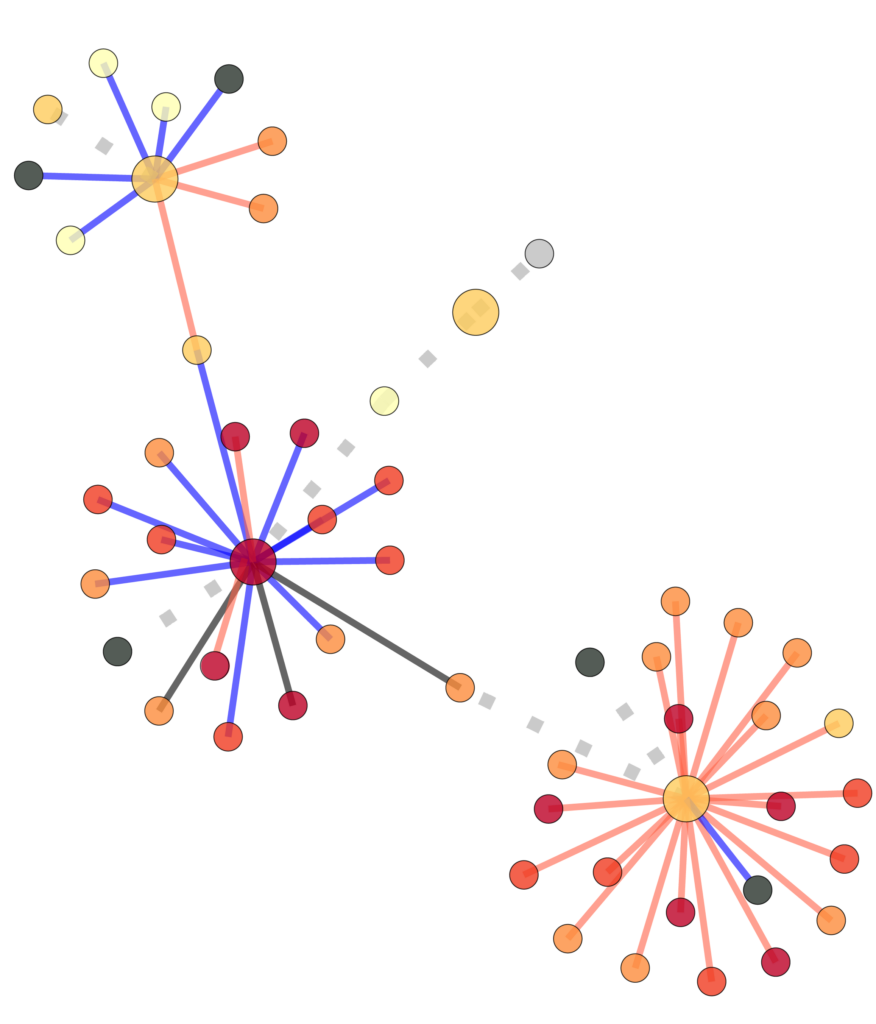Social Network Strategies
Social Network Strategy
Social Network Strategy (SNS) is an “evidence-supported” public health approach designated by the CDC to encourage people to engage in HIV care and prevention services. Individuals recruit people from within their social networks and refer them to the appropriate services.


Enhanced Social Network Strategy
While Social Network Strategy was originally designed to engage people to seek HIV testing, Enhanced Social Network Strategy (eSNS) links individuals to a full range of HIV testing, care, and prevention services. The RESPOND study will also evaluate the integration of HIV genetic cluster analysis with eSNS and partner services activities.
Molecular Epidemiology and HIV Genotyping
Molecular epidemiology refers to a public health strategy that combines the disciplines of microbiology and epidemiology to analyze the genes of pathogens, like HIV, and use that information to respond to the spread of disease in a community.
HIV genotyping is the laboratory process of obtaining or “reading” HIV genetic information from a person’s blood sample – it does not record that person’s genetic information or DNA.
In Public Health
Examining HIV through genotyping allows healthcare providers to identify which drugs the virus may be resistant to and to prescribe the best combination of drugs to treat HIV.
Comparing the genetic sequences, or genotypes, of different samples of HIV sent to laboratories also helps public health officials discover and respond to transmission of HIV among people in the same social or sexual network. The virus evolves quickly once inside a person’s body, so similar HIV genotypes sampled from different people indicate that the virus has recently been transmitted from one person to another. However, this technique cannot determine who transmitted the virus to whom.
In the RESPOND Study
Earlier research by Dr. Dennis and colleagues at UNC and the North Carolina Division of Public Health (NC DPH) found that using HIV genotype analysis to trace transmission networks increased the number of people with untreated HIV reached by public health workers, as compared to traditional contact tracing methods. One of the aims of the RESPOND project is to continue applying these molecular epidemiology tools to HIV response efforts in North Carolina. This research will evaluate how these tools can help to direct an Enhanced Social Network Strategy that links people in active HIV transmission clusters to care or prevention services.
This current research project is done in collaboration with NC DPH and South Carolina’s Department of Health and Environmental Control (SC DHEC). Researchers will use HIV genotype data – reported to NC DPH since 2018 and SC DHEC since 2013 – to better understand ongoing clusters of HIV transmission. This information will not be connected to individuals’ names.
More Information
NC DPH and the CDC have several useful factsheets and FAQs designed to share more information about what molecular epidemiology and genotyping can and cannot do for the public health response to HIV. You can explore these resources and learn more about each topic by clicking the buttons below.
